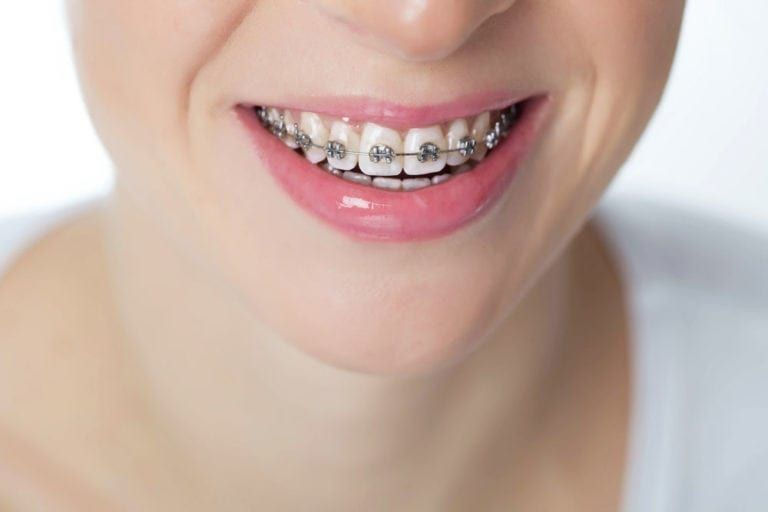Dental Implant Infection: Causes You Need to Know
- dclinicdubai
- Apr 28, 2025
- 4 min read
Dental implants have transformed the lives of many people by offering a permanent and natural-looking solution for missing teeth. However, as successful as these procedures usually are, there is always a small risk of infection. Understanding the causes of Dental Implant Infection in Dubai is critical for patients who want to ensure the long-term success of their implants. With the right knowledge and proactive care, you can significantly minimize your risk and maintain your new smile for years to come.

Poor Oral Hygiene After Implant Surgery:
One of the leading causes of dental implant infection is inadequate oral hygiene following surgery. After receiving a dental implant, maintaining a clean environment around the implant site is essential to prevent bacterial buildup. If food particles and plaque accumulate, they can create a breeding ground for infection. In Dubai, where patients have access to advanced dental care, dentists consistently emphasize the importance of regular brushing, flossing, and professional cleanings after implant placement.
Smoking and Tobacco Use:
Smoking is a well-known enemy of oral health and dramatically increases the risk of implant failure and infection. Tobacco affects blood circulation, reduces the immune response, and delays healing, creating an ideal environment for bacteria to thrive around the implant site. Patients who continue smoking after receiving implants in Dubai often face a much higher risk of developing Dental Implant Infection in Dubai, making smoking cessation a crucial recommendation from most implant specialists.
Existing Gum Disease:
Gum health is the foundation of successful dental implant placement. When periodontal disease is present and left untreated, it can compromise the surrounding tissue and bone that support the implant. Bacteria from gum disease can easily infiltrate the surgical area, leading to infection. That’s why many Dubai dentists require a thorough gum health evaluation and necessary treatments before proceeding with implant surgery to ensure optimal conditions for healing.
Surgical Contamination:
Although rare, surgical contamination can occur during the implant placement procedure. This might happen if the surgical instruments, the implant itself, or the surgical environment are not perfectly sterile. Fortunately, in Dubai, dental clinics adhere to strict sterilization protocols that minimize the chances of this happening. Nonetheless, it is crucial for patients to choose a highly reputable and experienced dental clinic to further reduce the risk.
Inadequate Bone or Tissue Support:
Dental implants rely on strong bone and healthy gum tissue for stability and integration. If the bone quality is poor or the gum tissue is thin and weak, it can increase the risk of complications, including infections. Bone grafting or tissue grafting procedures may sometimes be necessary before implant placement to create a suitable foundation. Dubai dental professionals often use 3D imaging and detailed diagnostics to assess and strengthen these structures beforehand.
Overloading the Implant Too Early:
Placing stress on the implant before it has fully integrated with the jawbone can also cause infection. This stress, known as overloading, might occur if a temporary crown is placed too soon or if patients resume normal chewing functions too quickly. Allowing the proper healing time is critical for implant success. Experienced implant dentists in Dubai carefully plan each treatment stage to avoid premature loading and reduce the risk of Dental Implant Infection in Dubai.
Underlying Medical Conditions:
Certain systemic conditions can make a patient more vulnerable to infections, including those around dental implants. Conditions such as diabetes, autoimmune disorders, and osteoporosis can affect healing and immune response. In Dubai, dental specialists often coordinate care with a patient’s general physician to manage any underlying health issues before and after implant surgery, ensuring a more favorable environment for successful integration.
Allergic Reactions to Implant Materials:
Although rare, some patients may experience allergic reactions to the materials used in dental implants, most commonly titanium. These allergic reactions can cause inflammation, irritation, and infection at the implant site. During the consultation phase, Dubai implantologists often conduct allergy tests or opt for alternative materials if there is a known sensitivity, further safeguarding the patient’s long-term oral health.
Poor Implant Positioning:
Correct implant placement is vital for preventing future complications. If an implant is placed at an incorrect angle or too close to adjacent teeth or nerves, it can lead to uneven stress, tissue damage, and an increased risk of infection. In Dubai, advanced technology such as computer-guided implant surgery is widely used to ensure precision placement, drastically reducing the chances of these issues arising.
Ignoring Early Symptoms:
Sometimes, minor symptoms such as swelling, slight discomfort, or minor bleeding are ignored by patients, thinking they are normal after-effects of the surgery. However, these can be early signs of infection. Delaying professional evaluation allows bacteria to spread and cause greater damage. In Dubai, where dental clinics offer easy and quick follow-up appointments, patients are encouraged to report any unusual symptoms immediately to prevent escalation.
Final Thoughts:
Understanding the causes of dental implant infection empowers you to take the right steps to protect your health and your investment. From maintaining excellent oral hygiene and quitting smoking to choosing a skilled dentist and promptly addressing any unusual symptoms, every action you take matters. In a city like Dubai, where world-class dental care is available, leveraging these resources can help ensure your implants stay healthy and functional for many years. Staying informed and proactive is the best way to enjoy the full benefits of your dental implants without the worry of infection.


Comments